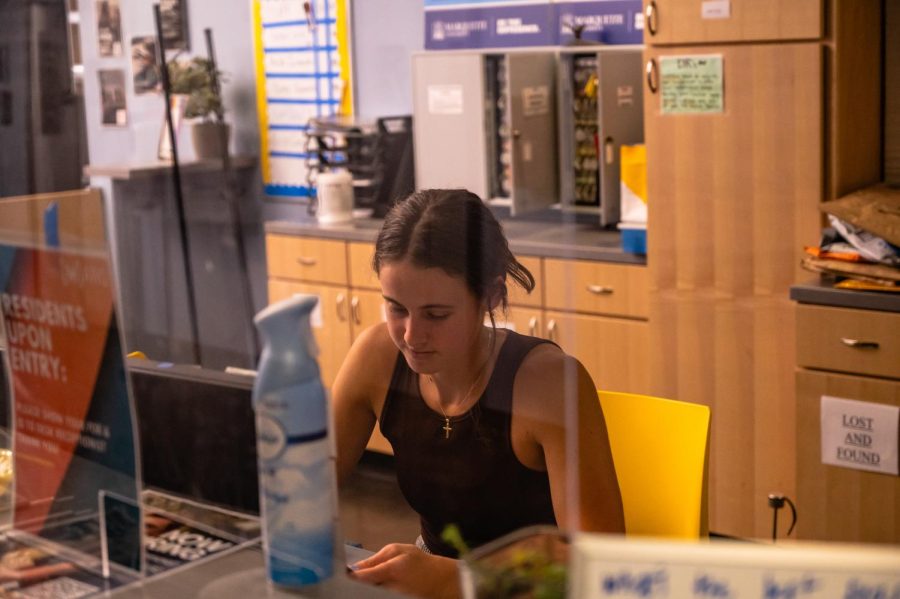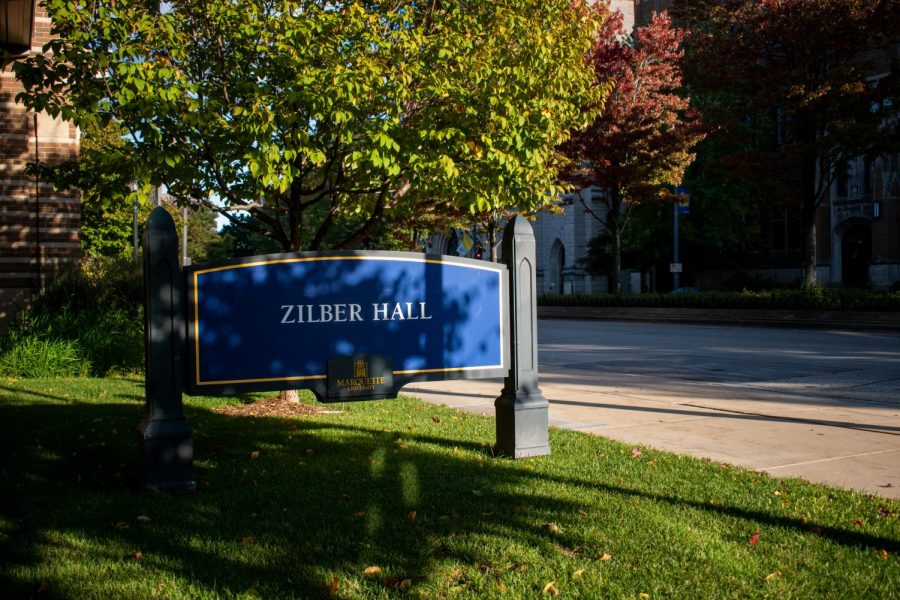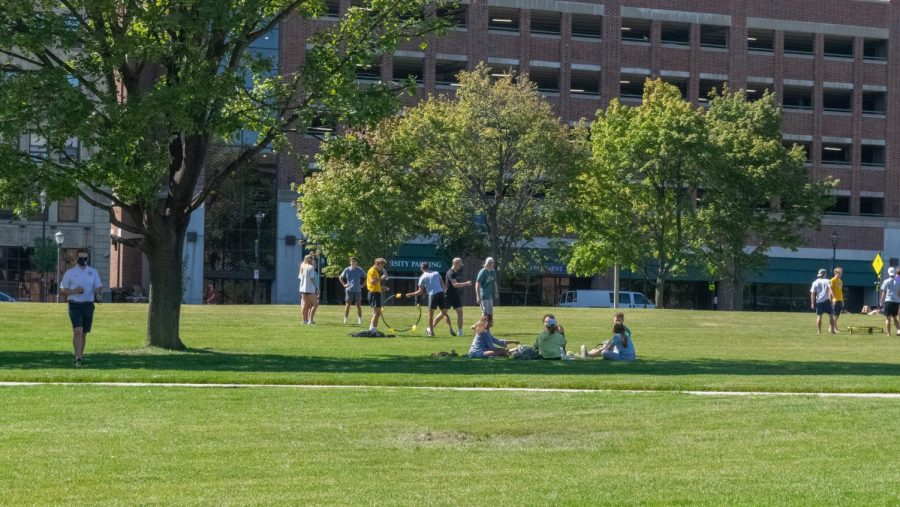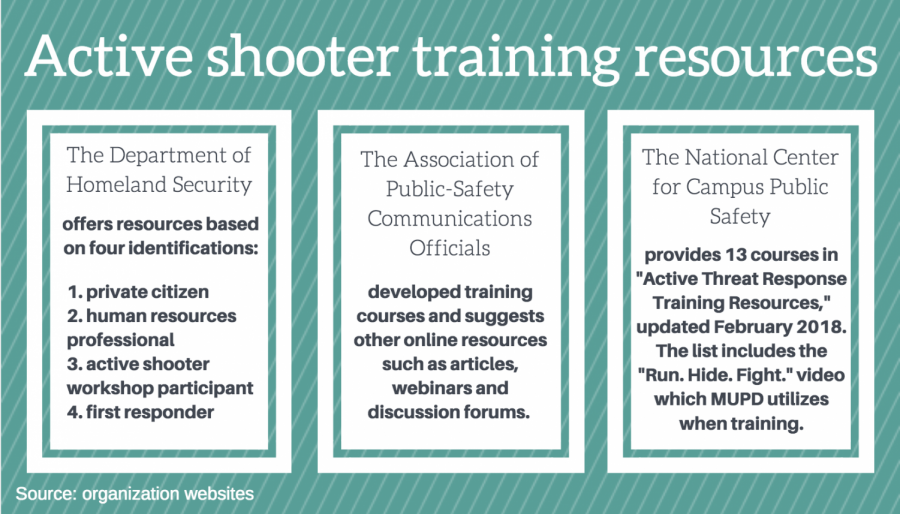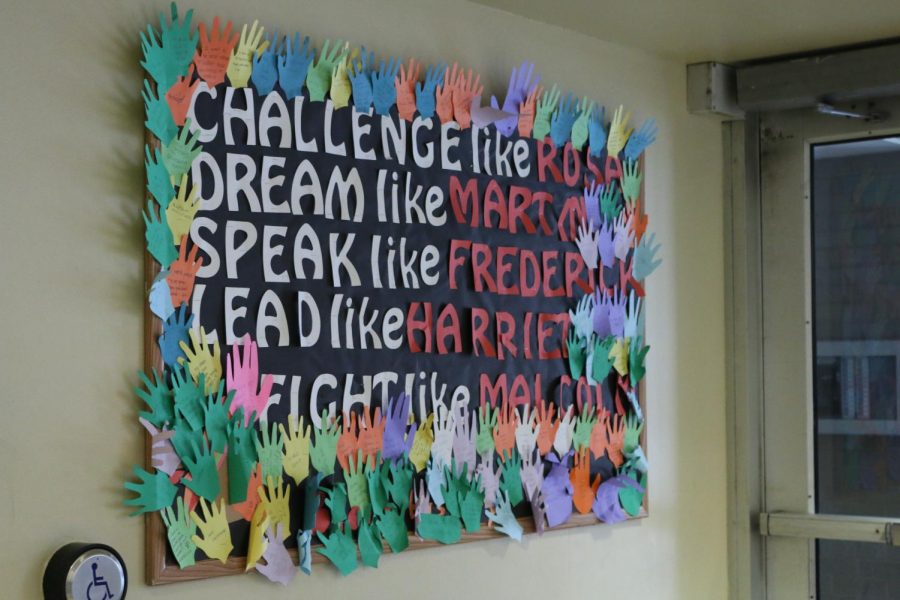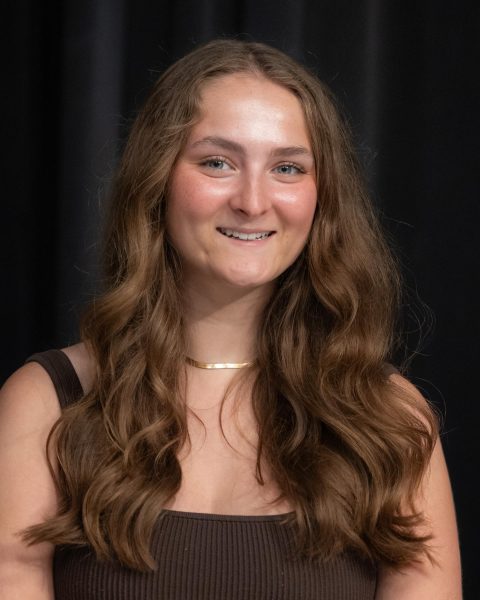When a pipe breaks, mail gets mixed up or the washing machine stops working in your residence hall, one might not think twice about who helps to ensure those are being fixed in a timely manner.
That’s the job of being a facility manager. The job typically consists of seniors or graduate students, and they make sure the building is safe and operational for all those living in the dorms as well as balancing the life of being a full-time student.
“The way that the residence hall director and the residence assistants are in charge of the people who live in the building, the facility managers are in charge of the building,” Simran Armstrong, a graduate student at the School of Dentistry and facility manager for Wells Street Hall, said.
Hannah Ray, a senior in the College of Health Sciences and facility manager for Mashuda Hall, said it can often be difficult juggling having a full-time job as well as being a student.
“I feel like I have been unable to compartmentalize my work from school, but hopefully I can start seeing the distinctions soon as we get past the settling after move-in,” Ray said in an email.
Similar to Ray, Cameron Heiser, a senior in the College of Business Administration and Campus Town West facility manager, said it can occasionally feel like there’s a lot going on being a student and a manager. However, Heiser said he feels like he’s been able to manage his time between the two.
“The only thing that can be taxing sometimes is that you live where you work, so if things come up you sometimes have to address them right away,” Heiser said in an email.
A trend between the three, Armstrong said she also struggles with the balance occasionally.
“It’s a really intensive job, and it requires a lot of time from everybody,” Armstrong said. “Doing it while also trying to be a student can be difficult because there will be nights that you’re on call and you won’t sleep … then you’ll have to go to class the next day.”
To help better manage her time, Ray said she only uses her work phone during her office hours as well as when she’s on duty.
“With this job, I feel like questions can be asked at any time, and it’s hard not to respond right away, so it’s very important to set boundaries and communicate with everyone living and working in the building who to call when,” Ray said in an email. “I feel like I have a running to-do list that I have yet to clear, and that does stress me out.”
Ray said that facility managers have to keep up on communication with the university’s maintenance staff when things need to be looked at. She said they also have to ensure constant communication between the residence hall director, resident assistants and residents as well as staffing the front desk and mailroom.
Currently, Ray said that she has a staff of 11 who work the front desk and mailroom. She said that they do an amazing job covering the desk from 7 a.m. to midnight every day.
Another part of her job, Ray said, is being on duty. Ray said being on duty means being available from 4:30 p.m. until 8 a.m. the following day. On weekends, she’s on duty from 4:30 p.m. Friday to 8 a.m. Monday. She said she’s on call 12 times throughout the semester.
“When you are on call, you can receive calls from RAs on duty, the RHDs on duty, the desk receptionists and Permar staff,” Ray said. “Being on duty means answering questions related to facilities and responding on site to major concerns.”
Heiser, Ray and Armstrong all became facility managers after hearing about the job while being RAs.
Ray said that going from being an RA to becoming a facility manager is the most popular route. She said this is probably due to the fact that RAs work alongside the facility manager.
“However, it is very possible to become a facility manager without having been an RA, as one of the current facility managers took this path after learning about the role while working on Summer Crew,” Ray said in an email.
Armstrong said the job was particularly appealing due to the larger apartment and increased pay, but most importantly she said for the opportunity.
“There’s very few 19 or 20 year olds who can say that ‘Hey I supervise a staff, I know how to do these things and have those hard conversations,'” Armstrong said. “I appreciate the opportunity that it’s given me and the relationships that I’ve built with my staff.”
This story was written by Julia Abuzzahab. She can be reached at julianna.abuzzahab@marquette.edu


